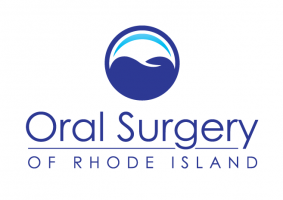Pediatric Care
The best way to teach children about dental health and instill good habits is to make learning about it fun! A friendly and inviting atmosphere helps make your children’s dental visits stress-free and enjoyable!

Table of Contents
Helpful Hints for Your Children’s Teeth
Good oral care begins right away! Wipe your newborn baby’s gums with a moist gauze or a washcloth after feedings.
Baby bottles and pacifiers dipped in honey, sugar or any sweet treat can cause tooth decay. Take away bottles once babies are done drinking. Never put a baby to bed with a bottle of milk or juice.
Do you know when you share your spoon or fork or clean your baby’s pacifier by licking it you can share bacteria that causes tooth decay?
Fluoridated water will help developing teeth develop strong enamel. Check to be sure your water contains fluoride or ask about fluoride supplements.
Encourage healthy, tooth-friendly snacks like fruits and vegetables and sugar-free snacks. Avoid sugary or starchy snacks and beverages. Frequent snacking and drinks do not allow the saliva in your child’s mouth to completely wash away the bacteria that cause tooth decay from teeth.
Keep your discussions about dental visits positive! Don’t share any dental fears or anxieties with your child. We are here to help them care for their teeth and are trained to make their visits comfortable.
Encourage children playing sports to wear sports guards and protect their beautiful smiles.
Prevent cavities by placing sealants on molars and premolars as soon as they erupt. Sealants are a clear, thin coating placed on teeth to prevent cavities in the grooves of teeth.
How Do I Take Care of Baby Teeth?
Wipe gum tissues with a moist gauze or washcloth after feeding. This will start them early with the feeling of having their mouth cared for.
When teeth begin to erupt, brush teeth twice a day with a small smear of toothpaste and a soft-bristled brush designed for infants.
How Do I Care for my Toddler's Teeth?
Use a pea-size amount of toothpaste on a soft-bristle brush designed for toddlers twice a day. Teach them to spit out after brushing.
Allow them to brush then ask them to let you have a turn and brush for them. Until children have enough dexterity and coordination to tie their own shoes, they will need your help.
When enough teeth erupt so they touch the tooth next to them, start flossing for them.
Try to break thumb-sucking or pacifier habits early.
Dental Care for Kids Ages 6 and Above
Baby teeth begin to fall out around age 6. Encourage your child to keep brushing all their teeth even the wiggly ones.
Continue to assist your child with brushing and flossing until a thorough job for complete plaque removal can be done on their own.
Require your children to wear a mouth guard to protect their teeth when playing sports.
Have sealants applied to prevent cavities
Have an orthodontic screening for early intervention of skeletal growth changes.
Dental Care for Kids Ages 12 and Above
Wearing orthodontic braces or appliances? Encourage more frequent brushing and flossing to prevent cavities. How they look when the braces come off depends on the care they give their teeth while the braces are on.
Fluoride rinses after brushing at bedtime can be helpful during these cavity-prone teen years.
Clean teeth and fresh breath should be part of the attention to personal appearance that is heightened during teen years.
Pediatric Dental Care FAQs
Pediatric dental care is crucial for several reasons. Firstly, it establishes good oral hygiene habits from a young age, preventing tooth decay and gum disease. Early dental visits also allow for detecting and treating any potential issues before they escalate into more significant problems. Proper dental care in childhood promotes overall health, as dental problems can impact nutrition, speech development, and self-esteem. Additionally, starting dental care early fosters a positive relationship with dentists, reducing dental anxiety and promoting lifelong oral health habits.
Your child should visit a dentist within six months of their first tooth eruption or by their first birthday, whichever comes first. Early dental visits are essential for monitoring oral development, identifying potential issues, and establishing good oral hygiene habits. These initial appointments also allow parents to learn about proper dental care for their child and receive guidance on topics such as teething, fluoride use, and nutrition. Starting dental visits early helps set the foundation for a lifetime of healthy smiles.
